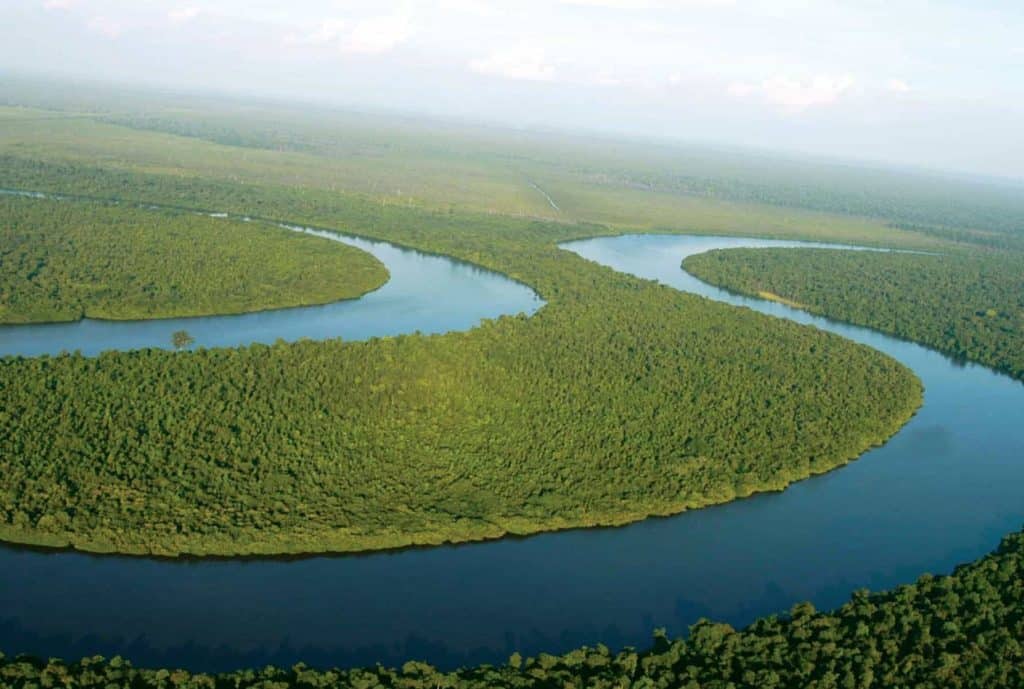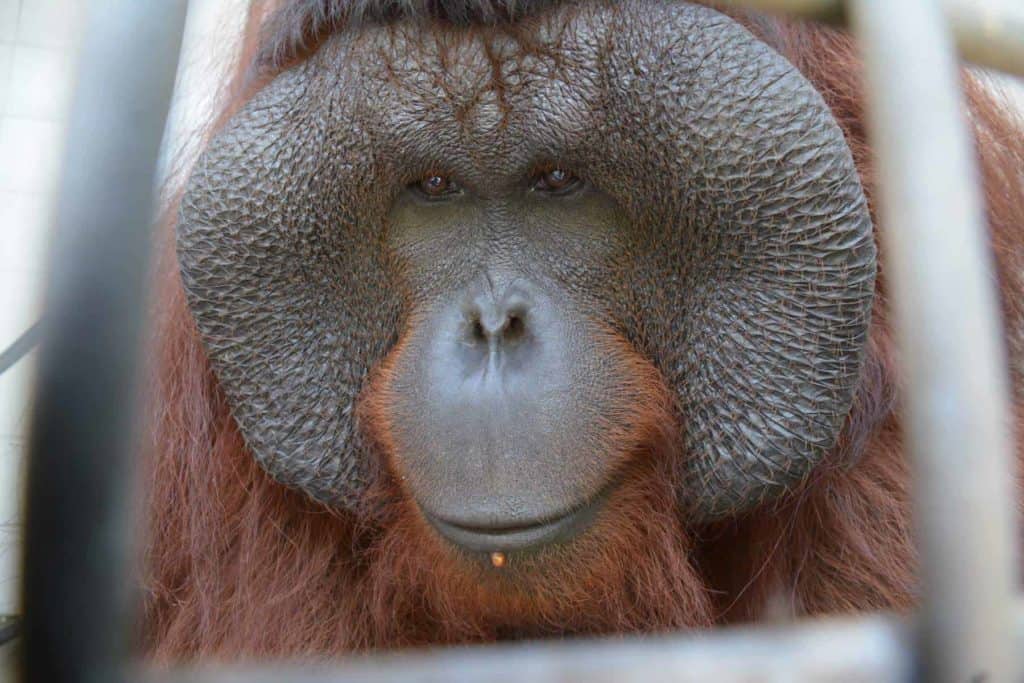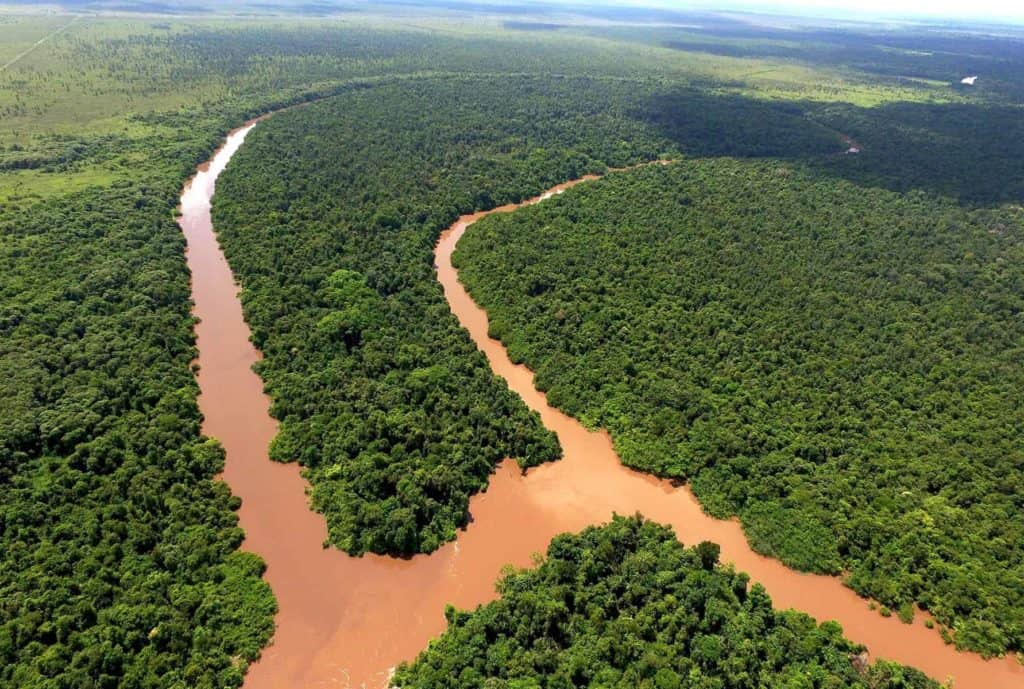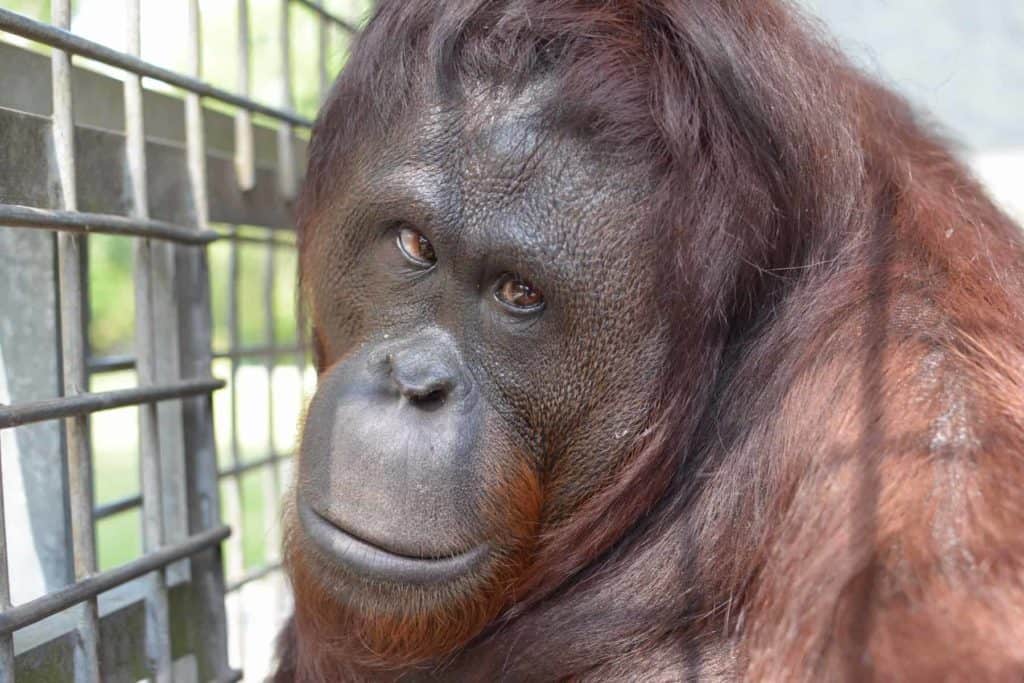Today, the first steps were taken towards establishing new and permanent sanctuaries for the orangutans at Nyaru Menteng that cannot be released. The aim of rehabilitating orangutans is to reintroduce them to the rainforest. However, some of the orangutans at the rehabilitation centres will never be able to be released. These orangutans are called the ‘un-releasables’, under which approximately 60 orangutans at Nyaru Menteng fall.
A new rainforest sanctuary for the un-releasable orangutans has now been established on the Badak Kecil island. The island belongs to the Salat Island area. Initially, six orangutans may now call this new sanctuary home.

Salat Island: Rehabilitation and sanctuaries on rainforest islands
Salat Island is a huge area within the rainforest, and it is surrounded by rivers in Central Kalimantan (Indonesian Borneo), south of the Nyaru Menteng rehabilitation centre. The area covers more than 2000 hectares, and it is managed by BOS Foundation who uses the island to rehabilitate orangutans.
Salat Island is the general name for the area consisting of several islands. One of these islands, Badak Kecil, is now going to be used as a permanent sanctuary for those orangutans who, due to either health or behavioural complications, cannot be reintroduced to the rainforest. BOS Foundation usually brings the orangutans to Salat Island to see if they can ‘pass’ their last ‘test’ in the rehabilitation programme: displaying their ability to survive on their own for at least a year.
However, the purpose of sanctuaries like Badak Kecil is different. The island is going to become a permanent home for the orangutans that cannot be released, for one or the other reason. Although it is a rainforest island, technicians and veterinarians can monitor the orangutans and make sure they are fed and cared for. Most importantly though, the sanctuaries allow the orangutans to live in optimal natural environments rather than the cages they live in at the centre right now.

All orangutans deserve freedom – no orangutans should live in cages
Initially, six orangutans are released onto Badak Kecil. The release is performed in collaboration with the local government; the PT Company; Sawit Sumber Mas Sarana (SSMS), who has provided the land; and World Animal Protection International (WAP), who has supported the infrastructure on the island and the release of the first six orangutans.
However, it has been planned that additional orangutans from Nyaru Menteng will be given a second chance of freedom in this sanctuary covering 104 hectares in 2019. The rest of Salat Island will continue to be used as pre-release islands.
“The rehabilitation and release of displaced and orphaned orangutans is a long process that can last for up to 8-10 years. The work is immense and no organisation can do it alone, especially not on the scale necessary to operate a big and efficient centre with more than 300 orangutans in its care. Unfortunately, some orangutans can never be released, and they too deserve the best future possible. Consequently, we focus our efforts to establish and support sanctuaries for those un-releasable orangutans,” Hanne Gürtler, director of Save the Orangutan, explains and she continues:
“We are therefore happy that BOS Foundation can ensure all orangutans freedom with the help from WAP International, international BOS partners, and other private actors. Releasing all orangutans from their cages is an enormous task, but we are working hard to realise that goal.”

New land and more sanctuaries
Besides Badak Kecil Island Orangutan Sanctuary, which will be the official name of the sanctuary, Save the Orangutan, BOS Foundation, and other BOS partners are ensuring the establishment of additional islands for the big males that cannot be moved onto Badak Kecil. These magnificent animals also deserve a life in freedom in as natural surroundings as possible.
In this regard, Save the Orangutan and our partners have prioritised freeing all the males since 2018. All help is welcome and will contribute to the establishment of orangutan sanctuaries – for all the un-releasable orangutans and the magnificent males.

What is the definition of an un-releasable orangutan?
Several factors can result in the definition of an un-releasable orangutan. For instance, injuries sustained before arrival at the rehabilitation centre, skills the orangutan have not been able to acquire in the rehabilitation programme, diseases, or behavioural problems revealed throughout the programme may factor into an orangutan’s possibility of being released. BOS Foundation operates with five categories of ‘un-releasables’ (orangutans that justifiably cannot be released).
Sanctuaries are physical and tailored rainforest areas promising these magnificent animals a worthy and free life – no matter their background and conditions.
Read more about our programme for permanent sanctuaries here >>